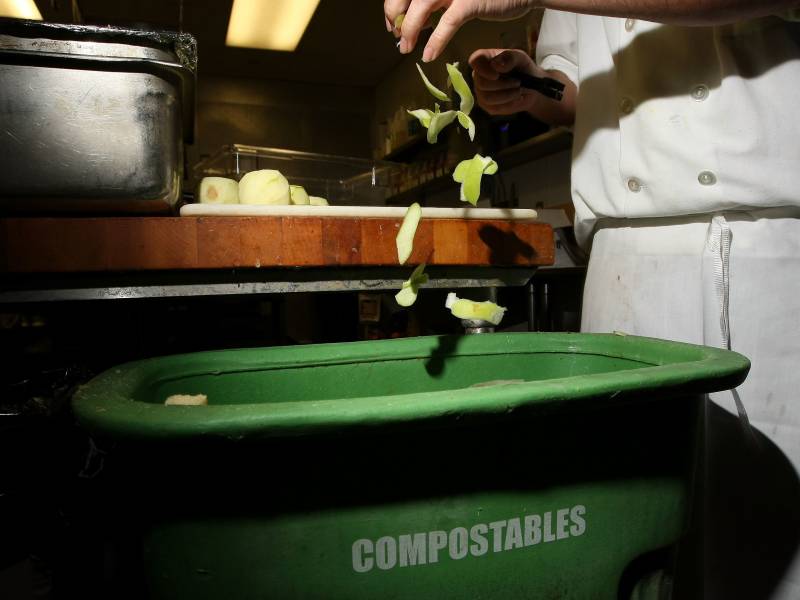By composting leftovers, a process that converts organic materials into nutrient-rich soil, people can help reduce the amount of trash being dumped into landfills, environmentalists say.
"Over 70 billion pounds of food waste reaches our landfills every year, contributing to methane emissions and wasting energy and resources across the food supply chain," said Andrew Wheeler, then the Environmental Protection Agency's administrator, in a statement the day before Thanksgiving in 2020. "This holiday season, we must all do our part to help people and the environment by preparing only what we need, cutting down our food waste, and sharing or donating what we can to feed others."
Some U.S. cities have set up curbside composting that allows residents to leave food waste in labeled bins for pickup. Those who do not live in neighborhoods with this service can bring food scraps to a compost drop-off location or community garden.

9(MDAxOTAwOTE4MDEyMTkxMDAzNjczZDljZA004))